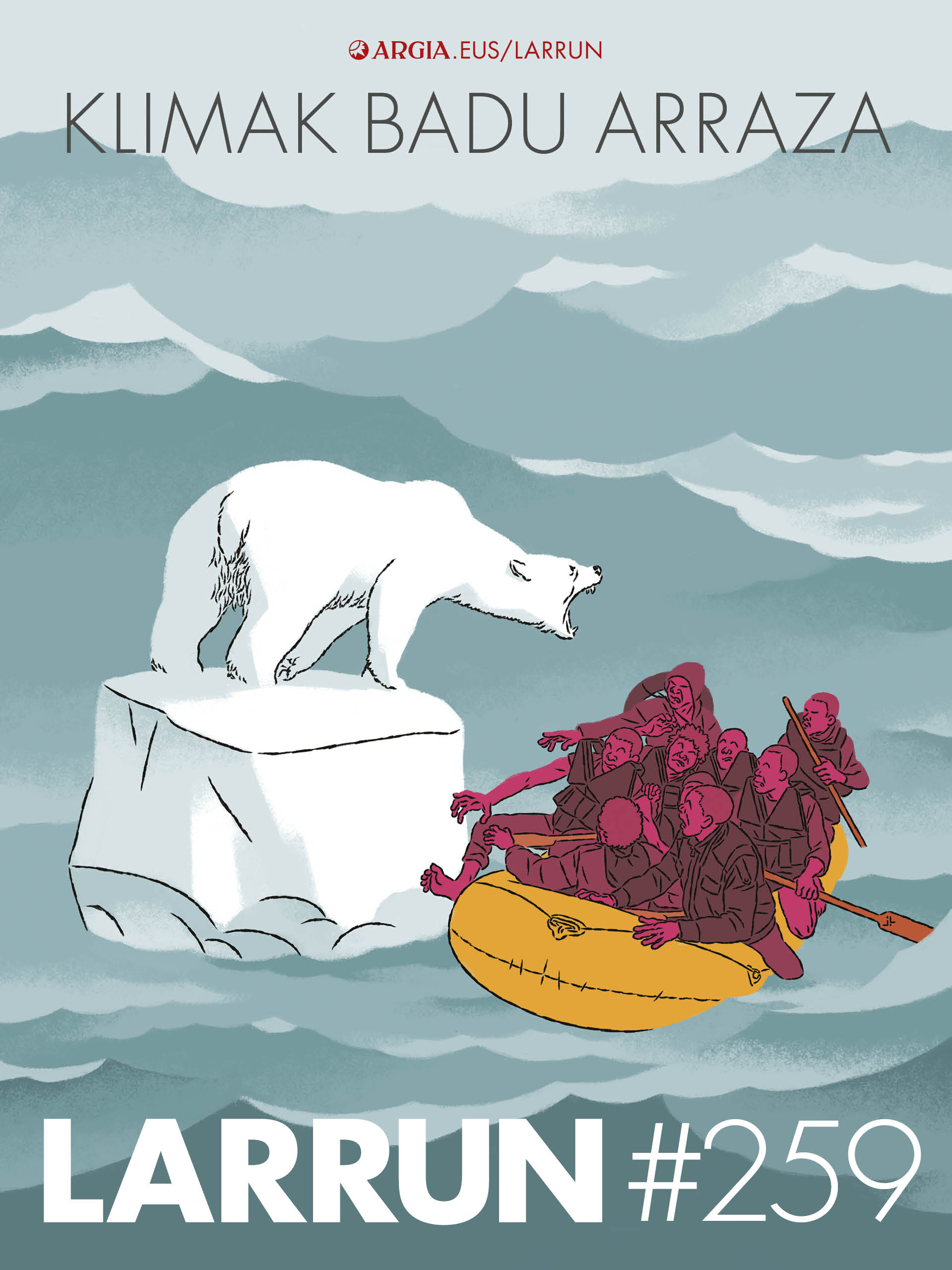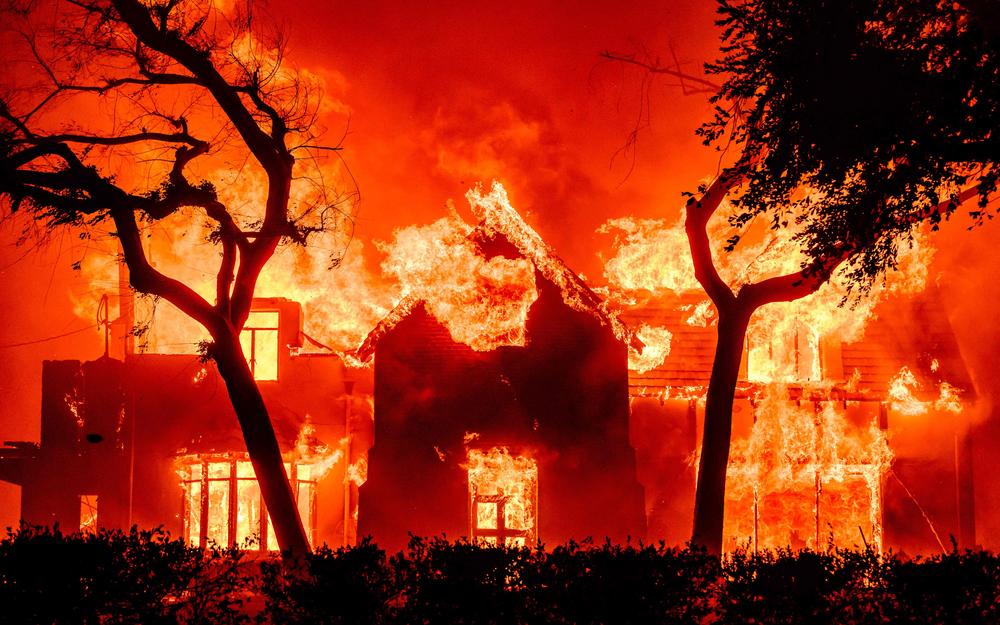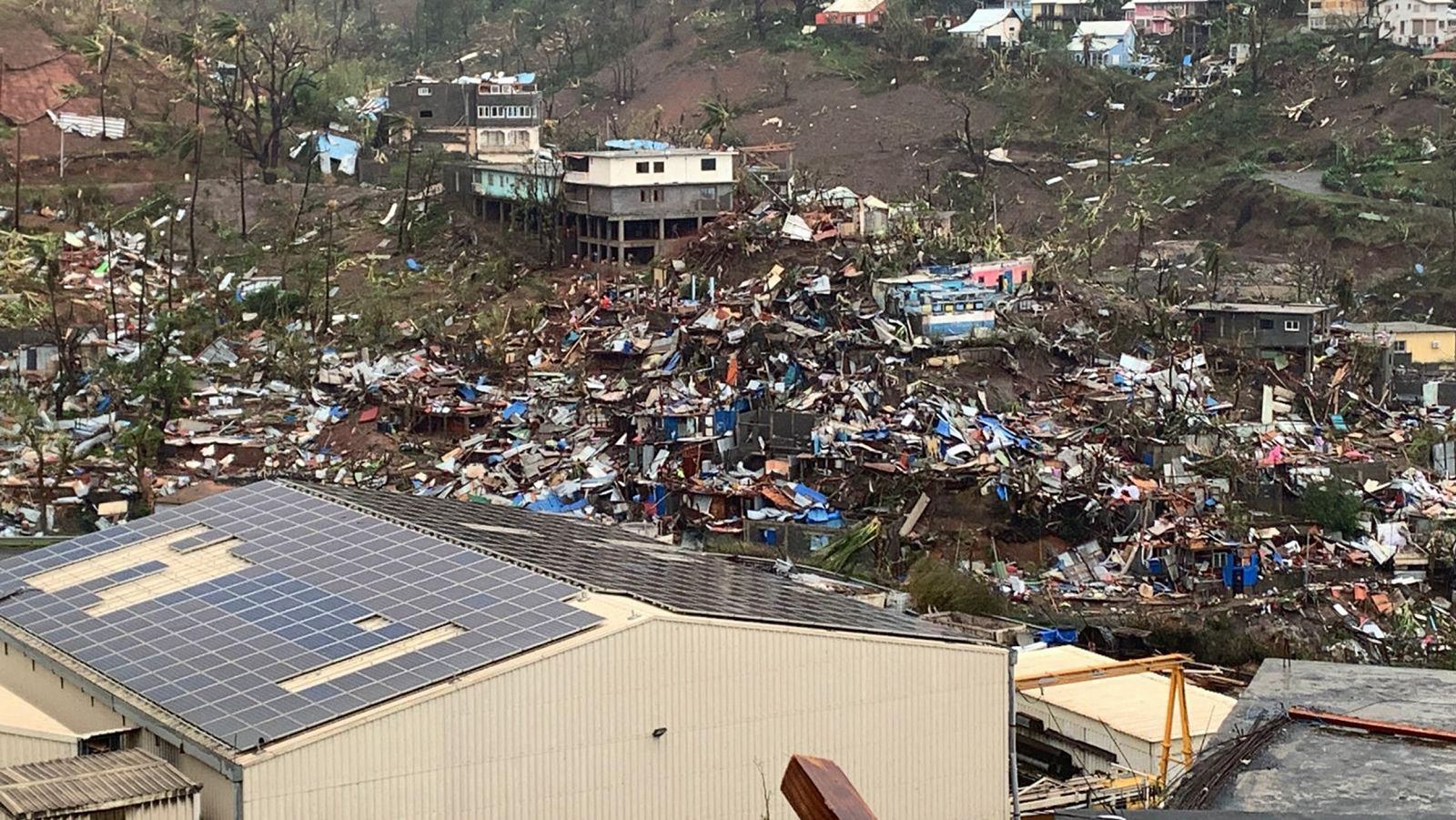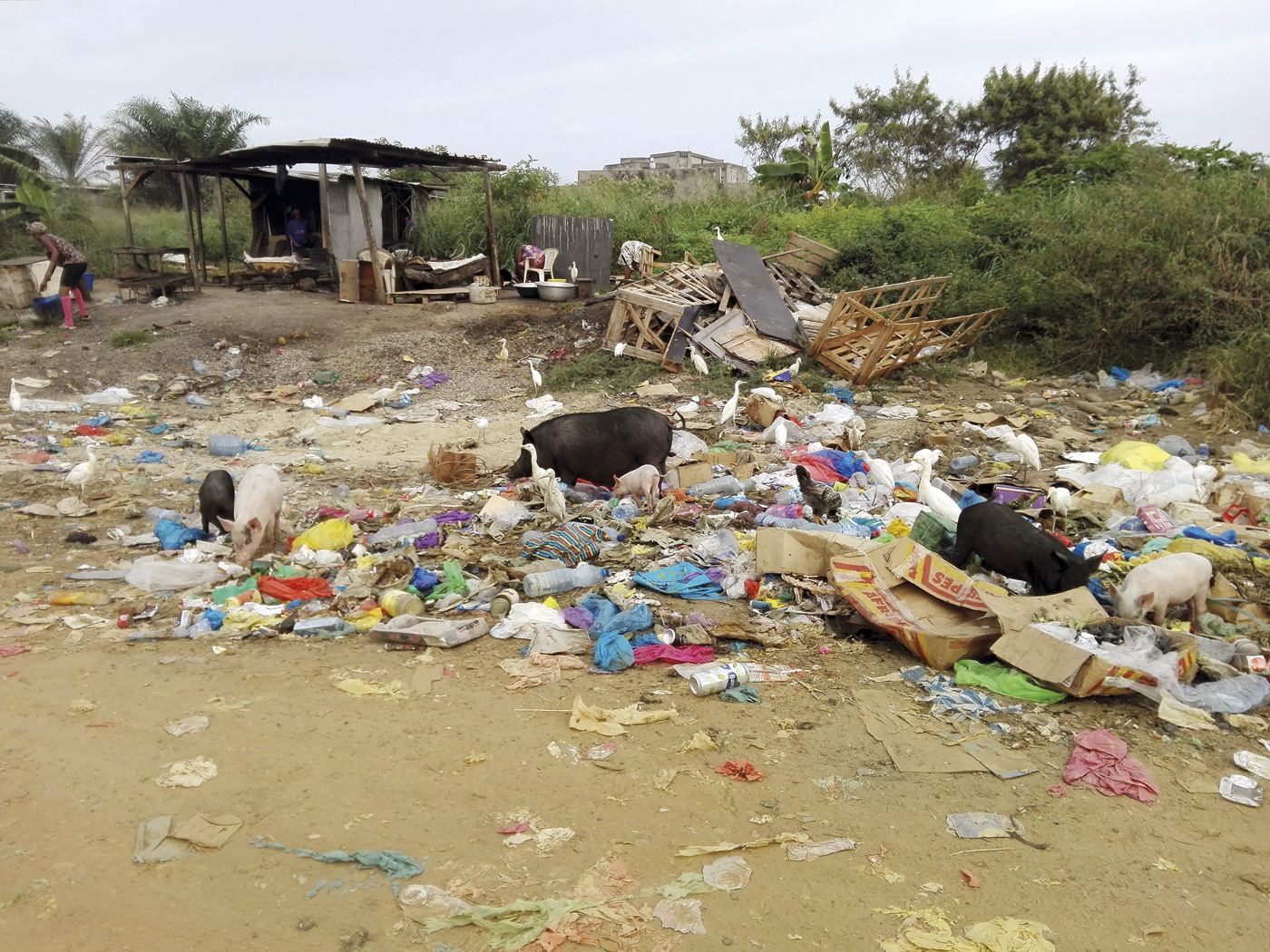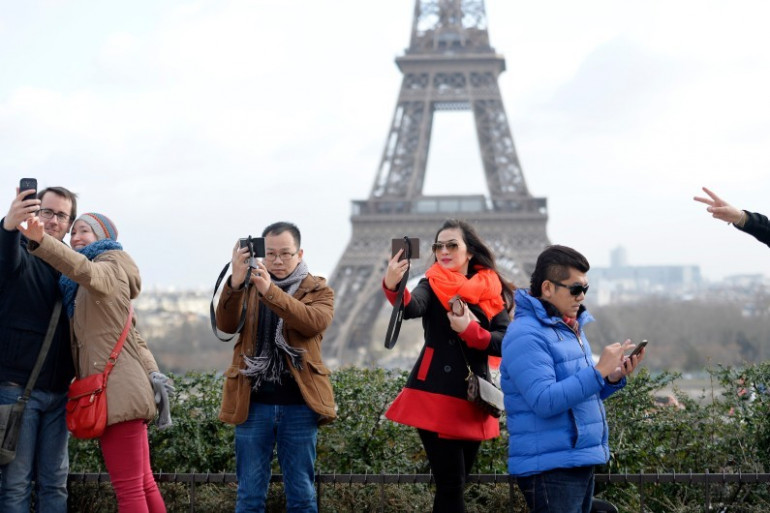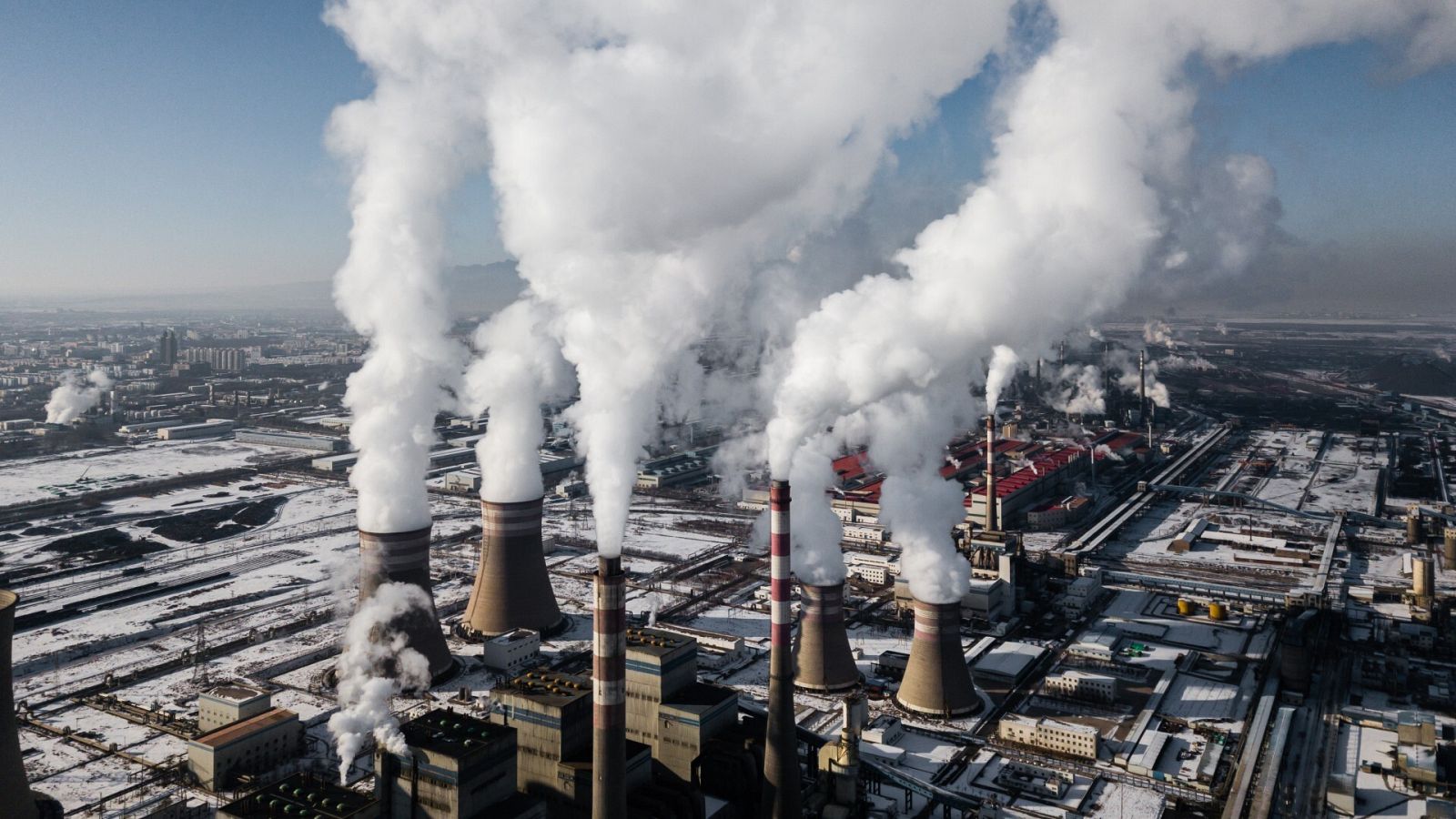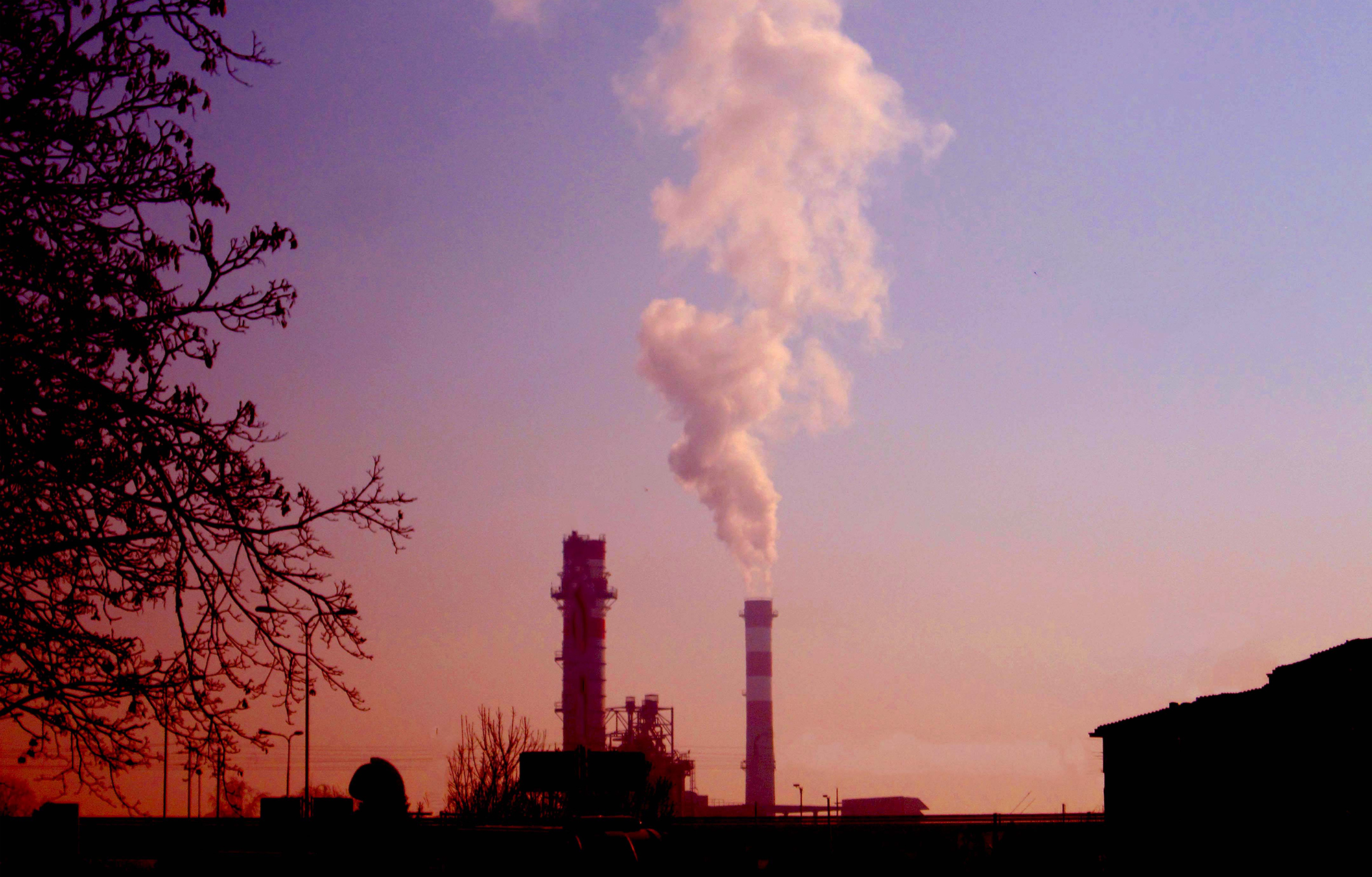"Western environmentalism extends in exchange for forgetting the colonial past"
- Malcolm Ferdinand, a political scientist and environmental engineer, was born on the island of Martinique and is a researcher at the National Centre for Scientific Research (CNRS) in France. In 2019 he has published Decolonial ecology: think of ecology the book Karibetatik, which has had an echo in the French-speaking world. He is also known for his work in denouncing the damage that the chlordeco pesticide thrown at the bandits has caused to the citizens. Sébastien Malo has interviewed the actress in one of the projections of the 2020 FIFDH Human Rights Film Festival.

Malcom Ferdinand: The main idea that has driven me in this study has been how to think about ecology, the ecological crisis, starting from the Caribbean world, the Caribbean contexts and cosmogony, more concretely from the history of the slavery that this region has.
What do you mean by saying ‘decolonial ecology’?
In my studies, and also in my life, I found what I call in the book “double pause”, with a double pause of modernity: on the one hand the patrimony of colonialism, postcolonial thoughts, decolonials… and on the other the ecological and environmental thoughts.
In the middle of the twentieth century, there have been the critical movements with modernity: on the one hand the ecological movement with all its variants, and on the other the independence, anti-colonialist, post-colonial, decolonial movements. Both critics of modernity, but who have made their own way, without crossing over, without really discussing between them.
This double rupture can be seen, firstly, in the sociological environment of ecologists: it is well known that in the composition of the militancy there are few people of black and racialized minorities in non-governmental environmental organizations, on both sides of the Atlantic, in France or in the United States, or in two Americas. We have mentioned the sociological composition of the movements, but we can also refer to the world of conceptual references that ecologists have built to analyze the ecological crisis. These references also draw attention to the scarcity of racialized personalities, of the diaspora, mainly black.
What happens is that in its bases, in its thinking, in its formation, in its praxis… The western ecologist movement has left behind the history of decolonial modernity and, above all, of slavery. The initial picture of the ecologist movement shows this absence in a painful way. In many of the dictionaries of ecology, when referring or genealogy to environmental thinking, two names are often cited: Henry David Thoreau in the US. United States and Jean-Jacques Rousseau in Switzerland, the Swiss know him very well bien.Ahi are the book of Wald de Thoreau and Les Rêremittances du voyeur solitaire de Rousseau.
In the paintings that illustrate these mentions there are two men, born in good, white families and with a social relationship with nature: they only work. They undoubtedly have eco-social relations with non-humans, but in the background they are white and free men in post-colonial and post-slavery societies, sometimes in colonial and slave societies.

That interesting historical observation you make, actually, has not been listened to by many others. But also, what is today's colonial environmentalism doing?
To begin with, it is important to dismantle the discourse, to highlight that it has only been possible to disseminate the ecologist discourse under the condition of silencing the colonial past. This may explain why today we have concepts and thoughts that are not able to consider and explain the experiences of the majority of the inhabitants of the Earth, especially the colonized populations and the fruit of colonial migrations.
"The concept of anthropocene or the theories of collapse encourage the innocence of whites. With the Negrozene concept, I would like to highlight the importance of the slave trade at the birth of modernity”
This means that our grammar, our vocabulary, in its own definitions, leaves much of the world's inhabitants free or involuntary. Concepts such as anthropocene, or collapse theories… are concepts that essentially foster what Gloria Wekker called in a beautiful book ‘the innocence of the whites’ [white innocence]. All this means moving the environmental movement away from a whole part of the Earth.
You talk about the Negrocene as an alternative to the Anthropocene… What does that mean?
The new concept of anthropocene was proposed by geologists and has been widely criticized, especially by anthropologists, because with this concept it is not possible to understand the differences between the causes of the destruction of terrestrial ecosystems. We know that it is not the people who live in the slums of Nairobi, Port-au-Prince or Martinique that have caused the warming of the current climate, but by inventing abstraction as Anthropos-Man they homogenize and disguise so many different relationships of inequality and power, so many injustices that are part of those destructions. With the creation of this abstract being, injustices are kept secret.
Anthropologists like Anna Tsing, Donna Haraway, etc., or thinkers like Andreas Malm, historians like Christophe Bonneueil or Jean-Baptiste Fresoz… have proposed other concepts for the same term to include different power relations, such as Capitalocene [Capitalocène], Plantaziozene [Plantationocene]. Certainly, in my book I mention the importance of the Atlantic slave trade in the birth of modernity and the role that enslaved Africans have played in the colonial settlement of the Earth.
It's not about creating a more universal concept than Anthropocene, but about replacing the Anthropocene with one more word. I am not in that fiction that believes that all the experiences of the Earth can be grouped into one word, I am in favour of the plurality of words that bring together various dimensions of what we live today. The Negrozene concept emphasizes the political and social dimension of slavery. In other words, it highlights the bondage of the human being, but also its metabolic and energetic dimension, since the oppressed human beings have been those economies based on violence, energy and raw material that have fed that system that have destroyed ecosystems such as human beings.
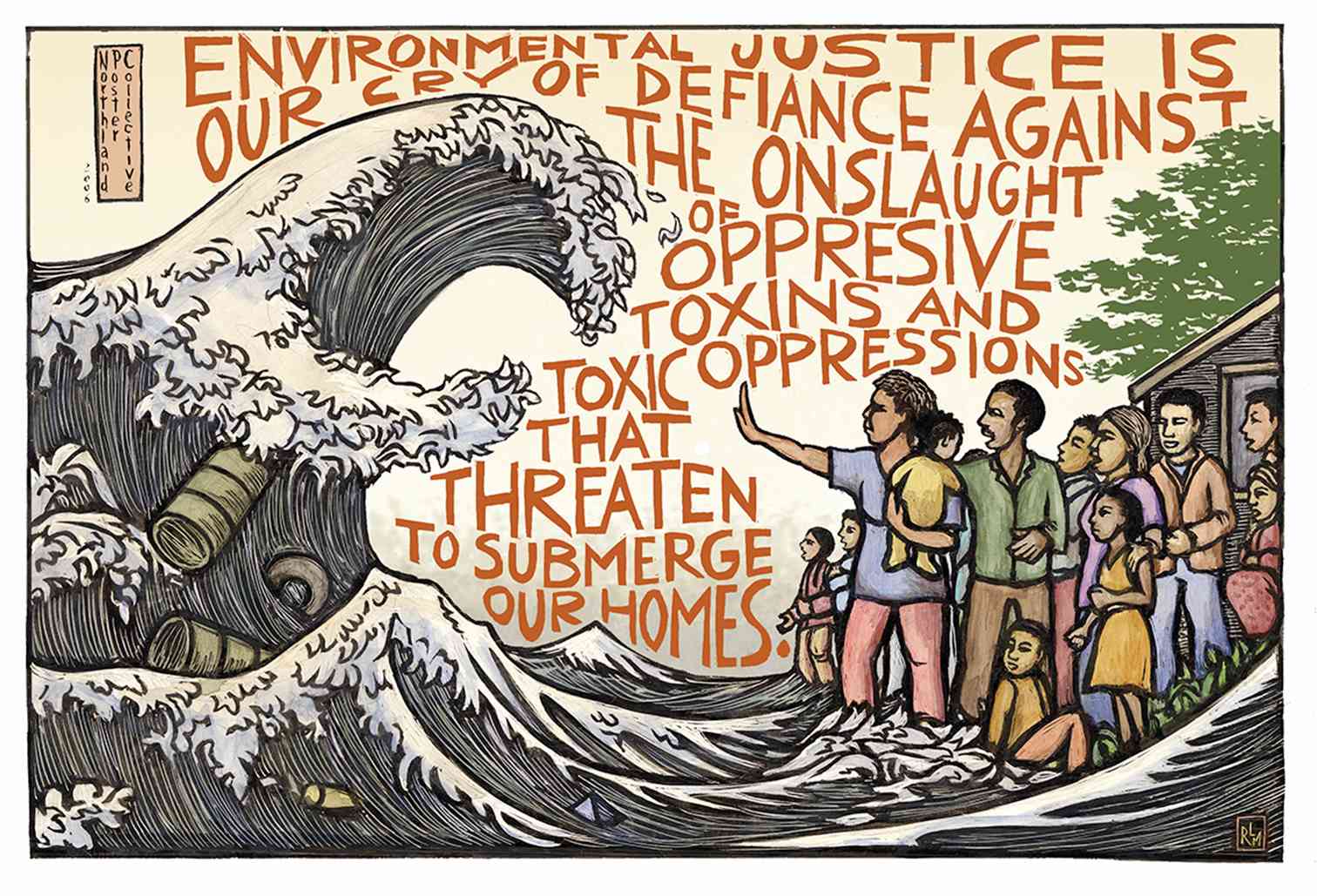
His studies focus mainly on France and the colonization that France has carried out beyond the sea. Do you think the issues you are presenting are more universal in nature, are they applicable to other examples?
My roots are in the Caribbean and the Caribbean is not just French-speaking. That's why I've given one chapter in my book to Puerto Rico, another to Haiti. But I also have roots in the West, and I'm arguing with the tradition of the ecologist thoughts of the West. This covers the whole of the West, it belongs to its imperial nature, it goes beyond the framework of the Hexagon and the regions it has on the other side of the sea. To be in the Mauritius or in the so-called Indochina, in the former colony of the Netherlands or in the United States itself.
"Western environmentalism has abandoned the decolonial part of modernity, and in particular slavery (...) as if they had invented environmentalism by walking white men by a virgin nature" "
Take, for example, the example of nuclear. The environmental movement has emerged to a large extent on the criticism of the nuclear bomb, very clearly in the case of Greenpeace. This movement, which is situated in a broader context of criticism of the technique, emphasizes that what has made these techniques possible has been the situation colonial.En 1945 the atomic bombs that exploded on Hiroshima and Nagasaki were made of Congolese uranium.
Here you can see that the road has been made without alliances with people who have made an anti-colonial criticism of the technique. The colonized opposed these techniques, such as those that in the United States were expelled from their lands by the inhabitants of Navajo, who carried out the Manhattan project and carried out tests of the bomb explosions. The people of Ghana, with Kwame Nkrumah in the lead, opposed the French doing atomic tests in the Algerian desert. After all, there have always been colonized peoples who have faced the effort to destroy their bodies and the Earth.
However, a story has been invented that gives an advantage to some by forgetting the responsibilities of what has happened so far, as if it had invented the environmentalism that a white man was walking through a virgin nature… when that nature was not exactly virgin. By doing so, environmentalism has been depoliticised, and so we have reached the present situation, where the same discriminations as before continue to be repeated in the speeches.
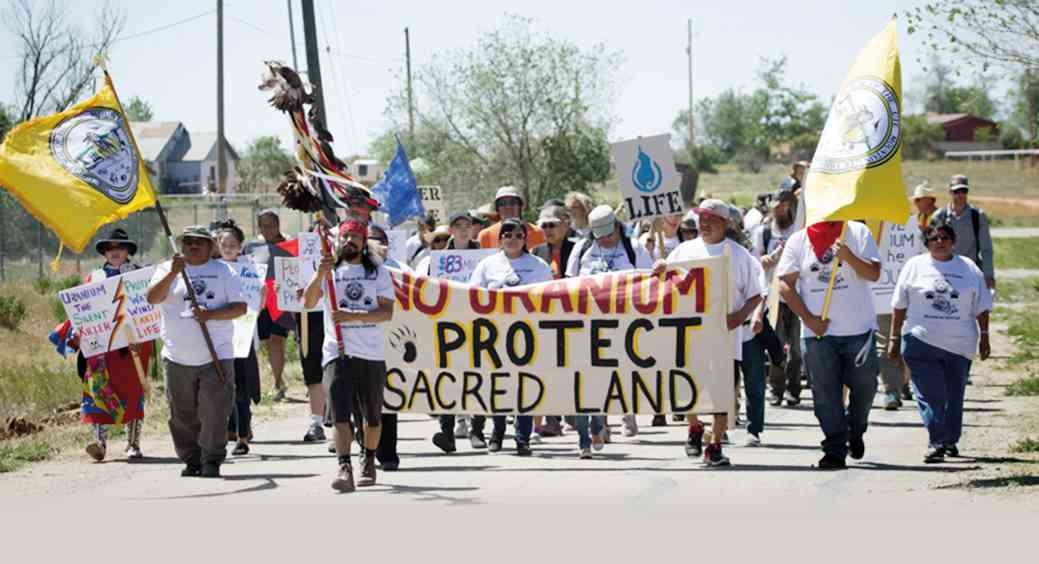
This has therefore led us to the creation and parallel action of two groups of activists, on the one hand anti-colonialist activists and on the other, environmentalists. Tell us the origin of this duplicity and why it seems harmful to you. And what can be done to get the two started in the dialogue.
The rupture has roots in the colonial bases of modernity. To give you an example, when John Muir, the founder of national parks in the United States. The U.S. speaks of Wilderness -- wild, intact, without human contact, vièrge nature, virgin nature -- uses racist language to talk about nature, which excludes the First Peoples of America who live in that nature.
The same applies to France when it talks about the famous Pierre Poivre on the Mauritius Islands, the man who was the first to establish a connection between the destruction of forests and climate change in that place, was responsible for a slave colony, also the slave owner. Therefore, the rupture has not been caused by those fighting against colonization, but quite the opposite: those who have built the environmentalist discourse not to mention race, racism and colonialism, are the ones who have caused the rupture. So today it seems that anti-racist discourse and environmentalist discourse are two different worlds.
So what happened? In the struggle to regain their dignity as a colonized people, other theorists have left behind ecological issues that have to do directly with what is happening in the world today. Surely because it has been felt that the problems of indigenous and colonized peoples had no place in the environmental movements. Unfortunately, there is mutual mistrust.
Why do you think it is unfortunate?
It is detrimental, because it is counterproductive that the ecosystem wants to defend itself without realizing that if oppression of human beings is not changed, the oppression of the ecosystem will not be solved. And on the other hand, as far as anti-colonialist thinking is concerned, it is clear that the racialized peoples, the colonized countries, the countries of the South, are the first victims of ecological disasters. An alliance is therefore pending to organise a much more unitary vision of the ecological problem at stake today.
However, this alliance cannot be conducted without a critical analysis of the rupture, a critical analysis of the concealment of environmental thinking about the history of colonialism.

Do you have any hope that this alliance will happen? In the United States, for example, there is a very strong movement called Environmental Justice that tries to assimilate the consequences of environmental problems on racialized people…
Decolonial ecology I haven't invented in this book, in 2019, many people do it long before. In EE.UU, long before the movement to which you refer, the people of the first peoples, those who have fled slavery, etc., have worked in that line. It is true that the US Environmental Justice movement is very interesting, because it links racism with the environment, the concept itself is a response to the idea of ‘environmental racism’ they denounce. But there is a risk that this effort will also be recovered to cover the colonial past again.
That is what has happened in France, for example: here the movement for environmental justice has been established in a totally depoliticised manner. In France it is believed that this issue is raised in a different way in the United States, where there is a lot of racism, but here the differences do not occur in the same way as there… basically, it is still thought that racism and the question of colonialism have nothing to do with environmentalism.
"It is about recognizing the destruction of the environment without acknowledging the damage done to indigenous peoples. So we have such exotic speeches. ‘See how the first peoples live in harmony with nature’
However, we must not lose sight of the fact that the loss of ecosystems suffered by the Earth over the past 500 years has only been possible over the oppression of the first peoples around the world, in America, Africa, Asia. Today we want to acknowledge the pressures on indigenous peoples without acknowledging the damage to the environment. So we have such exotic speeches. “Look at how the first peoples live, in harmony with nature,” this way of life is applauded, this worldview, without considering the demands for justice that these peoples continue to do.
Last year, Oskar Temaru of Polynesia in the hands of France has sued the French State for crimes against humanity in conducting atomic tests. Until 1995, France has carried out 196 atomic explosions in Algeria and Polynesia, so justice has not been done. Some of these bombs have been several times more violent than those launched by the United States in Japan, and they think about the damage they have caused to the local population.
Turning to the question, yes, it is true that there are bridges that have been built, but that have to be much stronger, and that justice is not just done for a few of all peoples, but for all.
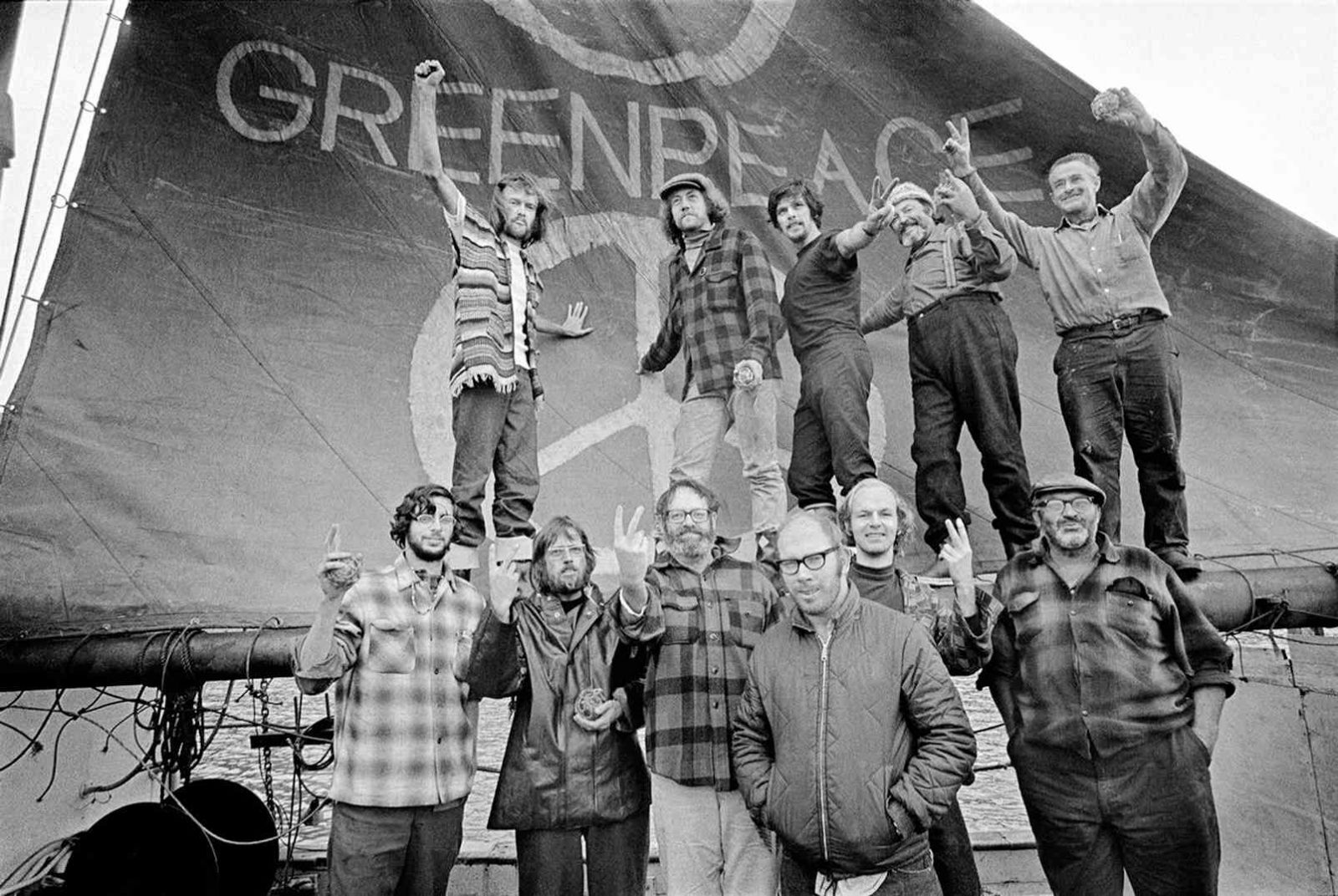
In conclusion, in these times we are seeing a revitalization of Malthusian theories among the environmental movements, especially those fighting for climate change. They say that “if fewer children are born, suppose that in Niger, countries with the highest birth rates, it will be enough for all people on Earth, that is the solution to climate change.” Do you think there is a risk that this thinking will be strengthened?
It is not a mistake, it is a clearly racist discourse. Because it is always the racialized countries that must limit their proliferation. And it's a very misogynistic speech, because it reinforces the control of the lives of racialized and colonized women. If we start from a discourse that only refers to the number of human beings living on Earth, without taking into account the different ways of life carried by an American, a Swiss or a French and, on the contrary, one from Niger … and the consequences that those lives will have … we try to match the differences, as we have done with the concept of Anthropocene. Since it establishes the responsibility of the ecological crisis [with Malthusianism] in the alleged production of the lives of black women, it is making a racist and misogynistic discourse.
This does not mean that people do not want to adapt their demography. But the speech you mention comes from a long time ago and always wants to blur the responsibilities of the West. As if it were not a problem how we live in the United States or in Europe, our consumption, how we export the effects of our consumption, the violence we generate far from us…
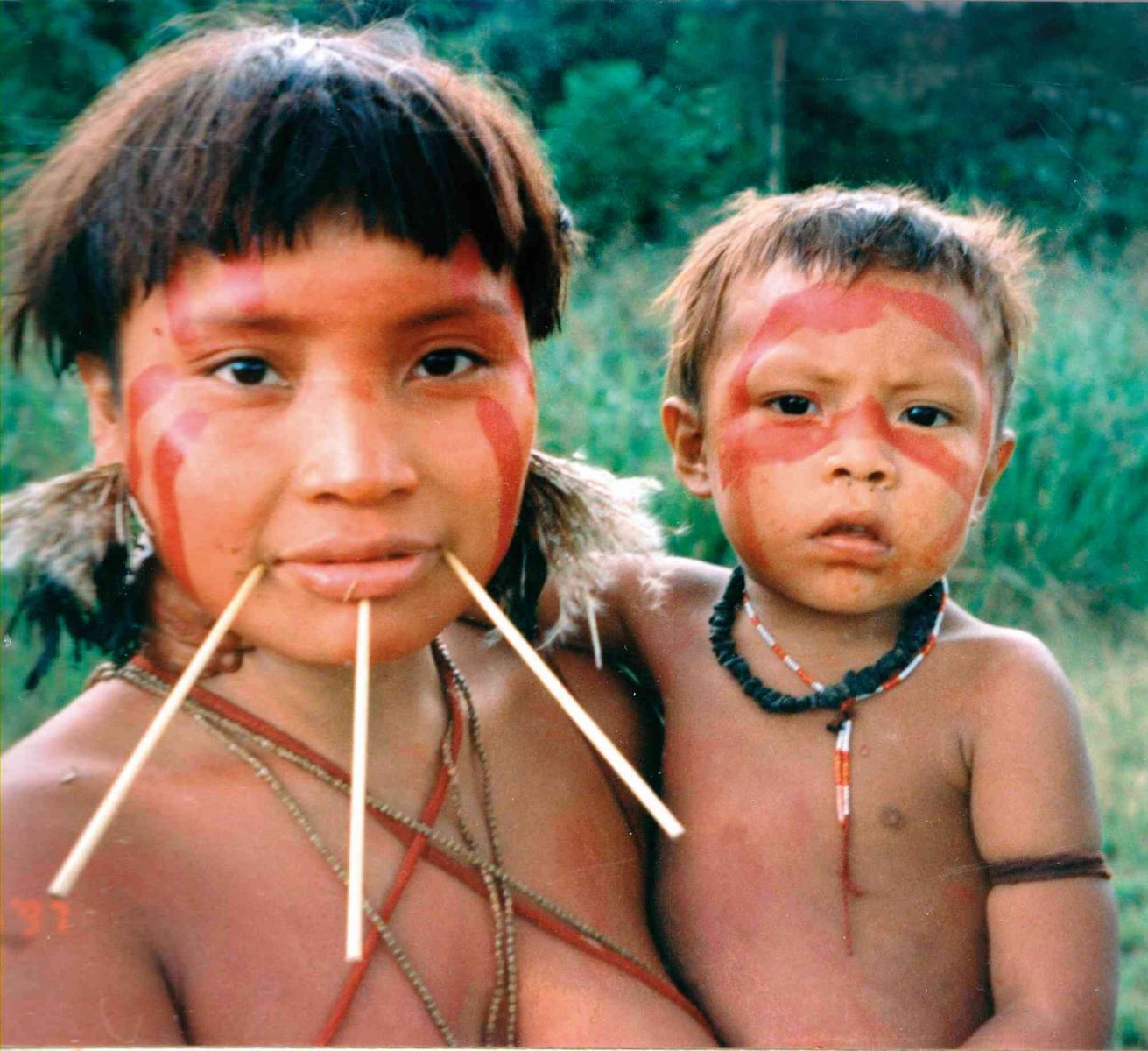
There was no one or all. That we all suffer at least if the necessary changes are not made so that no one suffers the climate emergency. You – reader – I – Jenofá-, they – poor – and they – rich. The fires in Los Angeles did not give me satisfaction, but a sense of... [+]
The understanding and interpretation of the mathematical language is what is important in the learning process, at least it is what we say to our students. The language of mathematics is universal, and in general, the margin of error for interpretation tends to be small. We... [+]
Recently, when asked what the climate emergency consisted of, a scientist gave the excellent answer: “Look, the climate emergency is this, you increasingly see on your mobile more videos related to extreme weather events, and when you realize, it’s you who are recording one... [+]
In recent weeks it has not been possible for those of us who work in architecture that the climate phenomenon of Valencia has not been translated into our work discourse. Because we need to think about and design the path of water in decks, sewers, plazas and building parks. We... [+]









